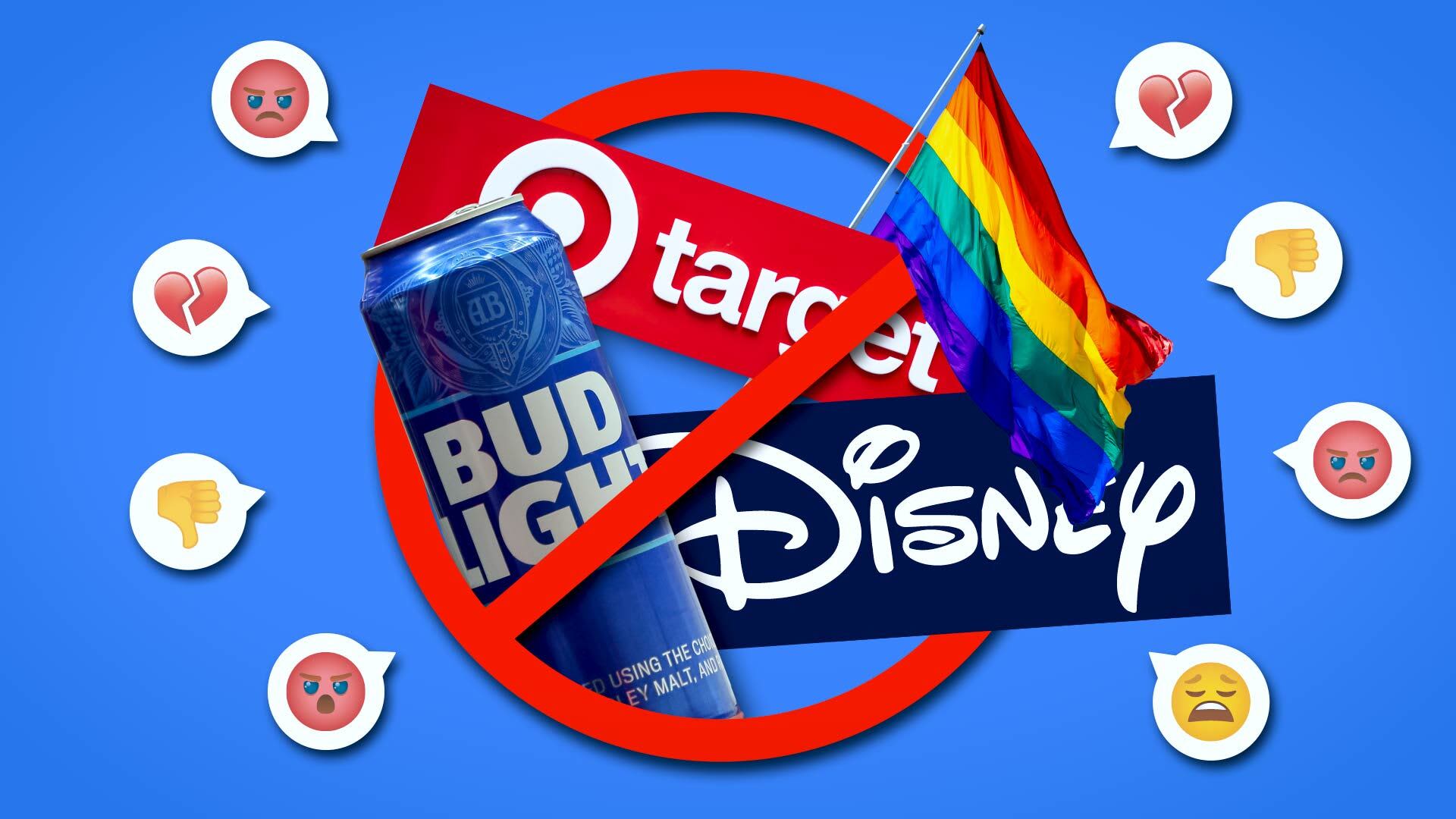In the face of attacks on businesses for their support of the LGBTQ+ community, companies are finding themselves caught between expressing their values and risking backlash, including violence, from a small yet vocal segment of their customer base. Boycotts against companies like Anheuser-Busch, Target, and Disney have resulted in significant public relations issues, market share losses, executive shake-ups, legal battles, and threats to employees. Furthermore, companies are facing a delicate balancing act as they try to appease both conservative customers who object to LGBTQ+ marketing and liberal customers who expect brands to stand up for equality.
Boycotts typically have minimal impact on a company’s bottom line, according to experts. However, the backlash against Bud Light has been particularly damaging due to several factors: the availability of alternative options in the market, extensive media coverage that has amplified the boycott, and a lack of a unified strategy from the company. Companies like Target and Disney are also grappling with the uncertainty of potential sales impacts from boycotts. Moreover, the increasingly aggressive opposition to LGBTQ+ marketing poses a threat to corporate inclusion efforts that have become more prevalent in recent years.
The boycott wave, which has disproportionately targeted transgender individuals, has even affected large companies with more progressive reputations. For instance, Starbucks employees have been told not to decorate their stores for Pride Month due to safety concerns stemming from the backlash against Target’s Pride merchandise. Despite the challenges, LGBTQ+ inclusion has become a standard practice for many businesses. However, the current political climate, with numerous anti-LGBTQ+ bills being introduced across the country, has made it more challenging for companies to navigate these issues.
While the boycott of Bud Light has caused significant damage to the brand, corporate boycotts are often overstated, and those offended by Pride Month campaigns represent a minority. Many companies, including Nike, North Face, and Walmart, continue to run pride campaigns despite pressure from extremists. Sarah Kate Ellis from GLAAD believes that Bud Light’s slowing sales may be primarily driven by opposition to the company’s response to the boycott rather than the initial conservative backlash.
The situation with Bud Light highlights the broader struggle that businesses face as they navigate a polarized social landscape where political positions and multicultural marketing can alienate certain customers. Anheuser-Busch has lost sight of its customer base, with both conservative and liberal customers feeling unsupported amidst the backlash. However, the company remains committed to supporting LGBTQ+ communities and initiatives.
The backlash is not limited to Bud Light alone; many brands have faced calls for boycotts due to their support for LGBTQ+ causes. While these companies have not experienced the same financial repercussions as Anheuser-Busch, the backlash has led to the scaling back of LGBTQ+ inclusion efforts. Target, for example, removed certain LGBTQ-themed items from shelves following threats to its employees. This boycott differs from traditional consumer boycotts in its aggressive and confrontational style, which associates workers with company policies they have no say in. The repercussions of Target’s decision may embolden boycotters to target other companies or return to Target for any perceived transgressions.
In the midst of these challenges, Walt Disney Co. has taken a strong stance against an anti-LGBTQ+ movement in Florida. The company is not only facing calls for a boycott but is also engaged in a legal battle against Florida Governor Ron DeSantis over a law limiting education on LGBTQ+ topics. Despite these challenges, Disney remains favorably regarded among the public.
In conclusion, businesses are facing significant challenges as they navigate the complexities of supporting the LGBTQ+ community while trying to avoid backlash and potential harm to their bottom line. Striking a balance between expressing values and appeasing customers is crucial in an increasingly polarized social landscape.
Denial of responsibility! VigourTimes is an automatic aggregator of Global media. In each content, the hyperlink to the primary source is specified. All trademarks belong to their rightful owners, and all materials to their authors. For any complaint, please reach us at – [email protected]. We will take necessary action within 24 hours.


